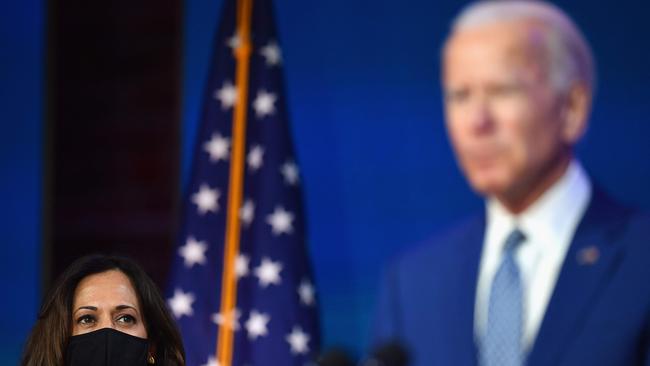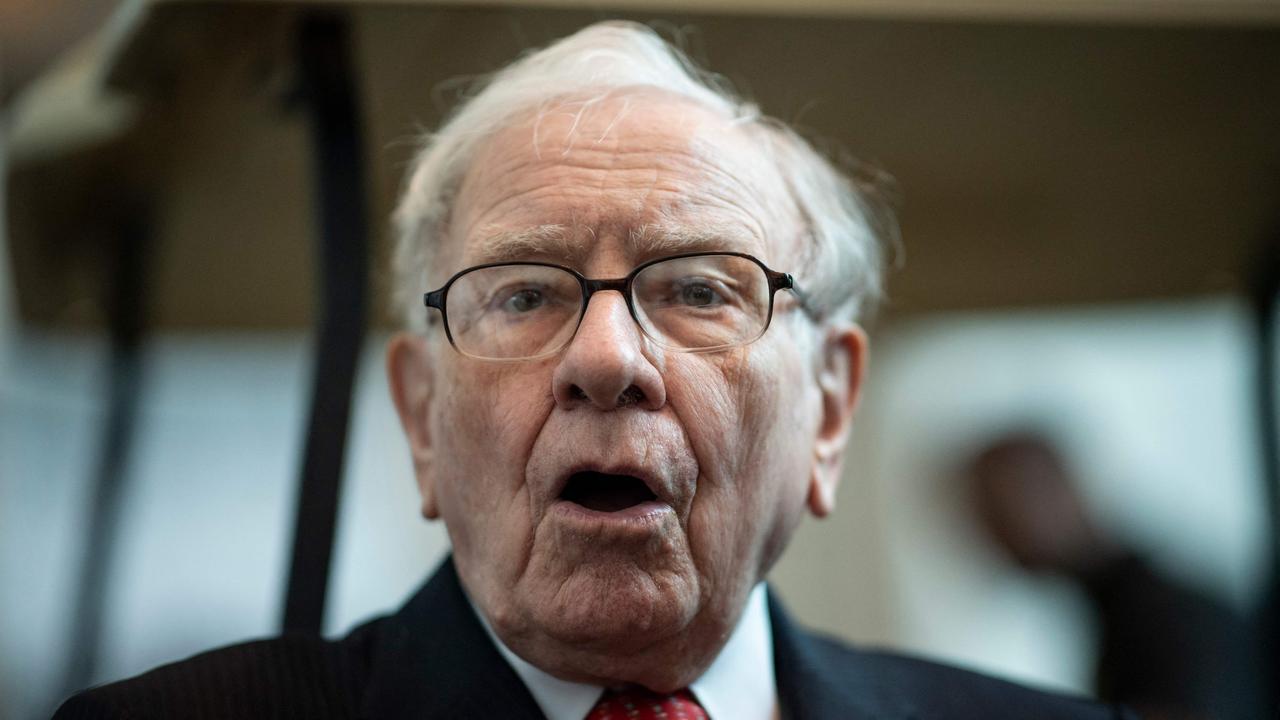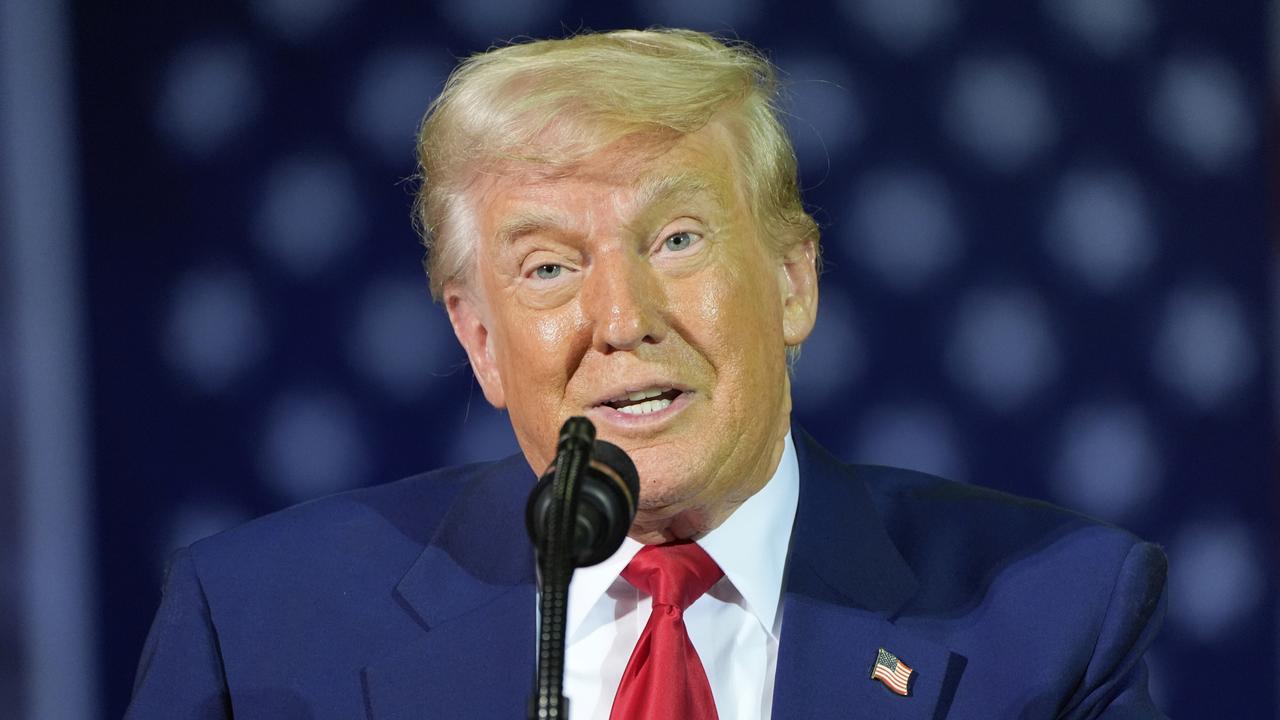Biden’s election win was a big bet for these Wall Street executives
A new administration produces a new cast of Wall Street players with lines into the White House.

A new administration produces a new cast of Wall Street players with lines into the White House. But Joe Biden’s backers in the industry are unlikely to share the close access enjoyed by the coterie of financiers who had the ear of President Trump.
Wall Street overwhelmingly put its money behind Mr. Biden in this election, and donations have always bought some level of access to the Oval Office. Hedge-fund investors Donald Sussman and James Simons and investment bankers Blair Effron and Roger Altman were among the biggest financial backers of the president-elect.
Roger Ferguson, chief executive of retirement manager TIAA-CREF, is in the mix for a cabinet post, according to people familiar with the matter. And financial executives like Morgan Stanley executive Tom Nides and former hedge-fund manager and presidential candidate Tom Steyer publicly backed Mr. Biden and could emerge with influence, or jobs, in his administration.
Some who are active in the party or who held positions in past Democratic administrations -- such as finance veteran Jeffrey Zients, co-chairman of Mr. Biden’s transition team, and Goldman Sachs Group Inc.’s Jake Siewert, who served as press secretary in the Clinton White House and in the Treasury Department under President Obama -- could join the new administration, Democratic fundraisers say.
Another Goldman executive who could head to Washington is Margaret Anadu, the 39-year-old head of Goldman Sachs’s urban-investment initiatives, whose name is said to have been floated for an economic policy position.
Pressure from the strongly anti-Wall Street progressive wing of the Democratic Party is likely to dim the influence of the finance industry in the new administration. So, too, is a desire of Mr. Biden to distance himself from the track record of Mr. Trump, who spoke of draining moneyed influence out of Washington but stocked his cabinet with supporters with ties to Wall Street and kept others on speed dial.
“The Wall Street Democratic crowd will have far less influence than in the past,” says Stefan Selig, an investment banker who runs BridgePark Advisors LLC and was undersecretary of Commerce during the Obama administration. “Money still talks, so Wall Street will always have access, but there likely won’t be a horse whisperer” in Mr. Biden’s ear.
Robert Mercer, a senior member of hedge fund Renaissance Technologies LLC, played such an important role helping Mr. Trump get elected in 2016 that he got a personal shout-out then from the president-elect, who traveled to Mr. Mercer’s estate late that year for a holiday party and thanked the financier for helping make his victory possible. Blackstone Group Inc. Chief Executive Stephen Schwarzman kept up a series of regular phone conversations with Mr. Trump to discuss economic policy and other matters.
The executives named in this article either declined to comment, wouldn’t discuss their potential ties to the administration or didn’t respond to a request for comment.
The financial industry thrived under the Trump administration. The stock market climbed, and Mr. Trump’s signature 2017 tax cut lowered the corporate-tax rate while protecting one of Wall Street’s most sacred cows -- the favorable treatment of carried interest that private-equity and hedge-fund managers receive.
But the turbulence that marked the Trump administration created unwelcome anxiety for the financial industry, which relies on a level of calm and predictability. Mr. Trump’s foreign policy, highlighted by nationalism and tariffs, was a threat to Wall Street’s global operations.
Many executives found their personal politics -- which tends to run centrist Democrat, with a dose of free-trade, low-tariff, fiscal conservative Republicanism -- at odds with elements of the administration. Many Wall Street firms embraced Black Lives Matter after this past summer’s protests, a nod to the progressive politics of their mostly urban, liberal employees.
Among the finance executives expected to wield influence in the Biden White House is Mr. Steyer. The former hedge-fund manager was the largest donor to Democratic causes during the 2020 election cycle, with over $67 million, according to the Center for Responsive Politics. Mr. Steyer, who lost to Mr. Biden in the contest to become the Democratic nominee, has maintained a strong relationship with Mr. Biden and senior members of his campaign, and could wield influence on the new administration’s environmental policy, according to some big Democratic donors.
Mr. Nides, who was a major bundler for Hillary Clinton’s campaigns and served as a deputy secretary of state in the Obama administration, has been a vocal backer of Mr. Biden. Now a senior executive at Morgan Stanley, he is expected to be considered for a job in the administration, likely in international affairs, according to people familiar with the matter.
Mr. Ferguson, one of the most prominent Black men on Wall Street, is buzzed about as a cabinet pick. A former Federal Reserve vice chairman who has served in administrations of both parties, Mr. Ferguson since 2008 has run TIAA-CREF, which manages more than $1 trillion in retirement and other assets.
Many of the firms most closely associated with Mr. Trump, such as Blackstone, real-estate firm Related Cos., which was founded by Stephen M. Ross, and Renaissance, have other high-ranking executives who supported Mr. Biden, effectively hedging their exposure to the new administration.
Mr. Simons, founder of Renaissance, gave more than $24 million to Democrats, while Henry Laufer, an early employee of the firm, gave more than $14 million. At Blackstone, both the firm’s executive vice chairman, Tony James, and its president, Jonathan Gray, backed Mr. Biden and hosted big-money fundraisers.
Mr. Sussman, who runs Paloma Advisors, gave $26.3 million to Democrats, making him the third-largest Democratic backer during this election cycle after Mr. Steyer and former New York City Mayor Michael Bloomberg.
Several financial executives bundled money for Mr. Biden’s campaign. Those who raised at least $100,000 for the candidate include Jeff Blau, chief executive of Related; Messrs. Effron and Altman, founders of boutique investment banks Centerview Partners and Evercore, respectively; investors Mark Gallogly and Eric Mindich; and Faiza Saeed, of corporate law firm Cravath, Swaine & Moore.
Personal donations from financial-services employees favored Mr. Biden, whose campaign received $202 million to Mr. Trump’s $84 million, according to the Center for Responsive Politics. But Wall Streeters seemed ambivalent and donated less overall in the 2020 presidential campaign than they gave in 2016, when the Republican field was wide open and establishment candidates like Jeb Bush and Marco Rubio made more centrist pitches that resonated with fiscal conservatives.
Mr. Biden’s effort to court wealthy donors drew controversy early in his presidential bid when he told a 2019 fundraiser that he didn’t intend to “demonize” the rich and that “no one’s standard of living will change” if he won.
One test of the administration’s ties to Wall Street will be Mr. Biden’s choice for Treasury secretary. The position has been held by bankers such as Steven Mnuchin under Mr. Trump, Henry Paulson under George W. Bush and Robert Rubin under Bill Clinton.
Past speculation has suggested Jamie Dimon, CEO of JPMorgan Chase & Co., might be considered for such a job in a Democratic administration. But progressive elements of the party have become more powerful, and likely wouldn’t be comfortable with a high-powered financier in a senior position in the new administration.
“There’s not a lot of clamoring for Wall Street CEOs to be part of the administration,” says a senior financial executive who supported Mr. Biden.
Dow Jones Newswires



To join the conversation, please log in. Don't have an account? Register
Join the conversation, you are commenting as Logout